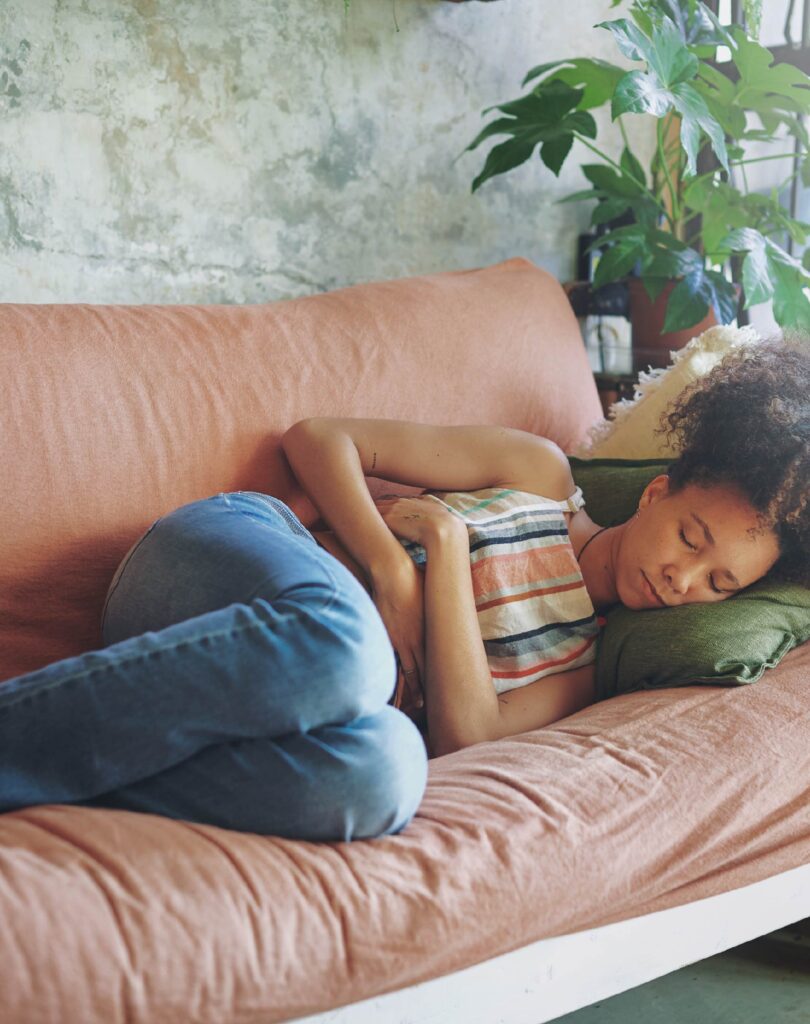Free shipping on all orders over $50 | Subscribe & save 15%
Free shipping on all orders over $50 | Subscribe & save 15%

Can your period trigger an IC flare? You may have noticed that your Interstitial Cystitis (IC) symptoms heighten before, during, or after your period.
It makes sense if you’re wondering about a link between IC and that time of the month.
When you have IC, it’s like your life becomes a delicate dance, where there are flares lurking around every corner. For many, your menstrual cycle can feel like an unwelcome partner in this intricate routine. In this blog, we’ll explore the complex relationship between IC and your period. We’ll shed some light on how your menstrual cycle might be worsening your IC symptoms.
When you have IC, there are quite a few potential triggers. Learn more about what could be sparking your IC flares and ways you can cope. In the meantime, let’s discover the impact the menstrual cycle has on your IC.
It is likely that your menstrual cycle could trigger an IC flare. However, your specific IC triggers are unique to your body.
Your menstrual cycle might impact you in a few ways:

The menstrual cycle is a symphony of hormonal shifts. It can trigger a cascade of events in the body.
For individuals with IC, these changes can lead to heightened sensitivity in the bladder and pelvic region. The result? Increased discomfort, pain, and more frequent urges to urinate.
A study found that most people with IC experienced changes in their symptoms during their periods.
Here’s what happens when you’re on your period.
Estrogen is a key player in the menstrual cycle. It fluctuates dramatically in the days leading up to your actual period. This hormonal roller coaster can have a profound impact on your bladder lining. For some women with IC, this potentially leads to inflammation and heightened pain sensitivity.
Another element, prostaglandins, are natural chemicals within the body that rise during your menstruation. These hormone-like compounds facilitate cramping and the shedding of the endometrial lining. Unfortunately, prostaglandins can also influence bladder function, intensifying IC symptoms. This dual action can create a perfect storm for IC flares during menstruation.
While the interplay between IC and the menstrual cycle can be challenging, it’s crucial to remember that managing these conditions is possible. Here are a few tips that may help with IC and menstrual symptoms:
Holistic self-care
Building self-care into your routine is key for stress reduction. These practices, such as meditation, deep breathing exercises, and gentle yoga, can help alleviate the overall impact of stress on IC symptoms.
Mindful eating
As an IC patient, you know how important it is to maintain a balanced diet. A good rule of thumb is to avoid known IC triggers, like caffeine, alcohol, and acidic foods, especially in the days leading up to and during menstruation. For more on foods to avoid, check out our article: The IC Diet: 7 Foods to Avoid.
Hydration management
The human body is made up of 60% water, so as you can imagine, staying well-hydrated is a good idea. However, with IC, you have to be mindful of excessive fluid intake that could exacerbate urinary frequency. A good strategy is to opt for water-rich, hydrating foods, like cucumbers and watermelon.
Heat or cold therapy
Heat therapy can be a beneficial tool to soothe discomfort around the pelvic area. Warm baths or heating pads can offer relief by relaxing pelvic muscles and soothing inflammation in the bladder area. Another option is cold therapy if you feel a burning sensation or soreness. Try using a cold compress or an ice bath if you prefer.
The tips above are a great starting point, but you’ll also have to maintain open communication with your healthcare providers. They can offer tailored advice and suggest medications or interventions to manage both IC and menstrual symptoms effectively.

So, can your period trigger an IC flare? Every month, your period might be throwing your IC symptoms into a frenzy. It’ll take a comprehensive approach to rewrite the narrative of living with IC and dealing with periods, but we believe that relief is possible.
With lifestyle changes, dietary adjustments, and expert guidance, it is possible. Let’s forge a path towards comfort and vitality.
For more informative blogs, resources, and support, subscribe to our newsletter and stay up to date on the latest.
We promise we won’t spam you! Just a monthly recap of our favorite wellness tips, updates and more.